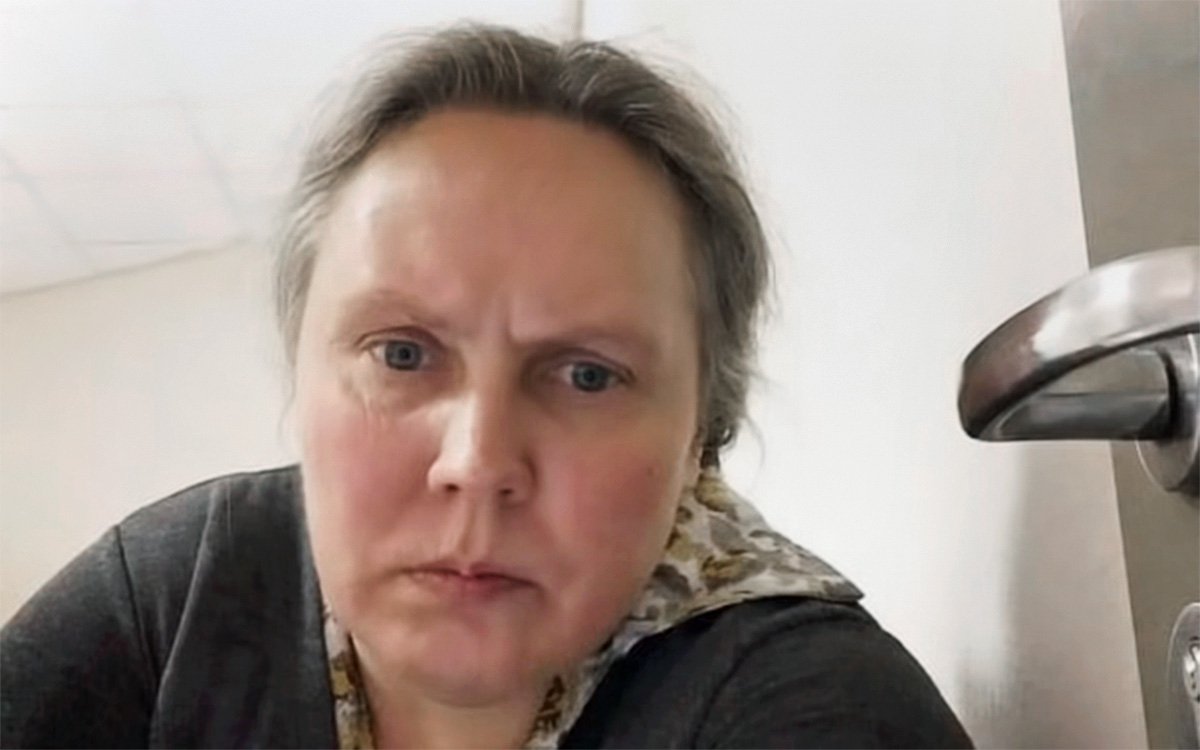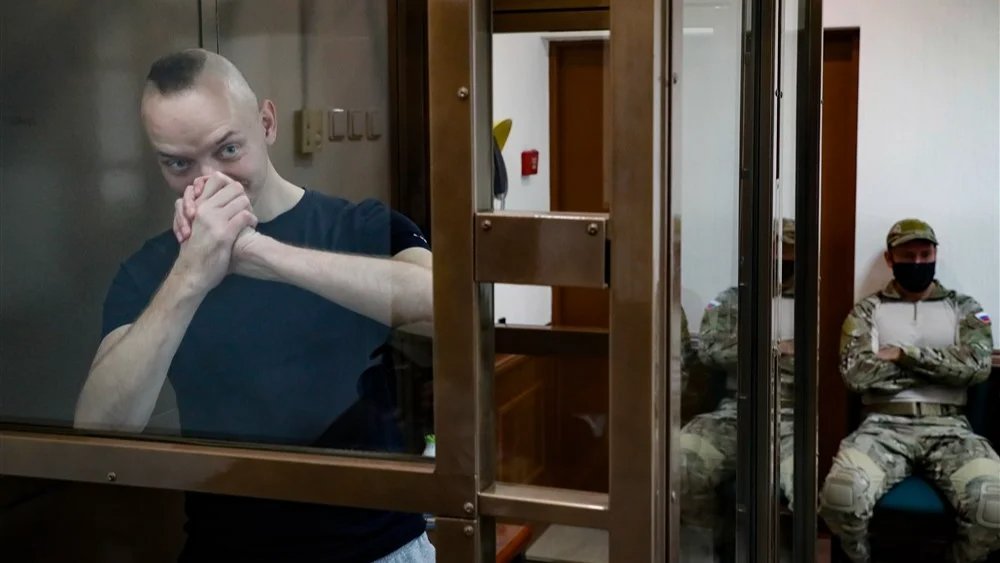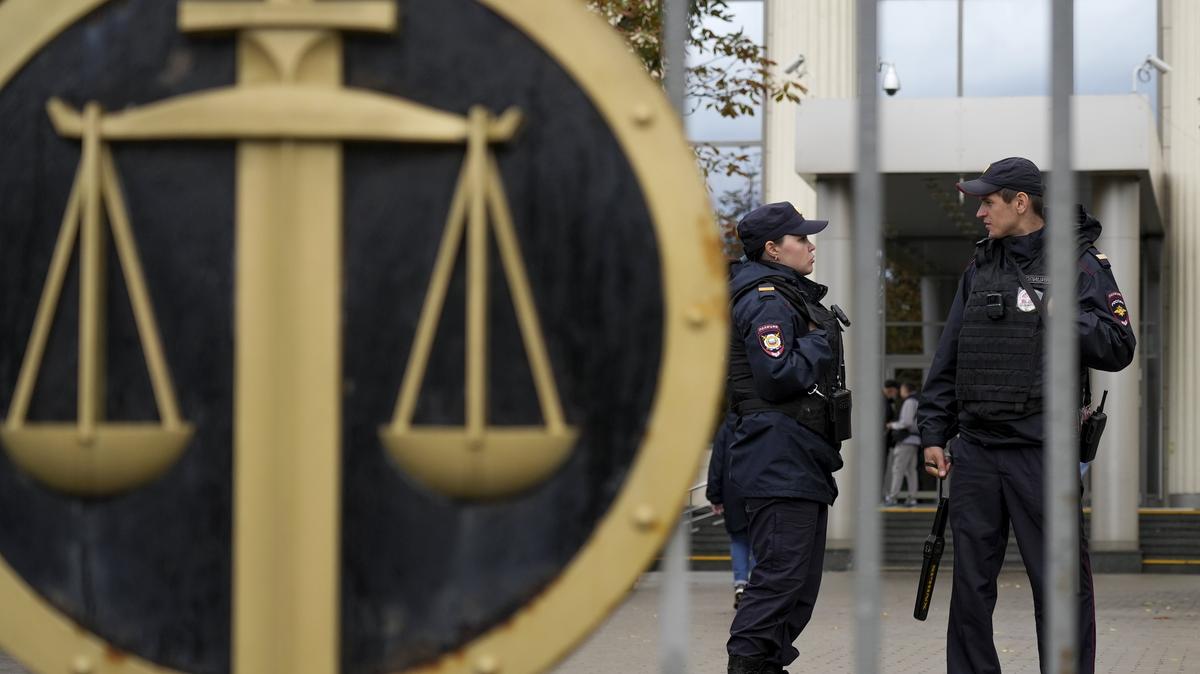Russia’s judicial statistics for the first half of this year neatly reflect life under the country’s military dictatorship in the second year of the war in Ukraine. This is a country where service in the military can provide criminals with a get-out-of-jail-free card both before and after their conviction, while long jail sentences can result from social media posts. The courts’ new-found indulgence for violent crime is just one of the six main trends suggested by the latest justice data.
Prosecution of migrants
Back in January, Alexander Bastrykin, the head of Russia’s Investigative Committee, which investigates serious crimes, suggested sending recently naturalised Russian citizens to the front as a matter of priority. In the first six months of 2023 alone, Russian courts tried more than 3,000 cases involving violations of immigration laws and residency rules, a steep rise on the total from the whole of last year.
The Civic Assistance Committee (CAC), a Russian human rights NGO, says the increased number of cases may be to do with the prosecution of Ukrainian refugees trying to avoid contact with Russian security forces. Such defendants can face deportation, but, according to a study by the CAC, courts prefer to impose fines. This may soon change, however, as last month the State Duma, Russia’s lower house of parliament, began reviewing legislation governing migrant expulsion procedures.
While the Interior Ministry says that “migrant criminality has increased by 25% in the past three years, which puts an additional strain on society”, independent Russian think-tank To Be Precise calculates that the number of crimes committed by foreigners in Russia actually only increased by 10% between 2021 and 2022, rising from 36,400 to 40,100.

Valentina Chupik. Photo: video screenshot
According to Valentina Chupik, a lawyer who defends the rights of migrants, the number of persons forcibly deported from Russia has increased 4.5 times, despite a decrease in their overall number. “At least 25% are expelled for no reason, on trumped up charges, backed up by no evidence”, Chupik said. The CAC believes that pressure on migrant workers will only increase further if the law is passed.
Crimes committed by soldiers
In the first six months of 2023, the courts tried almost 4,300 cases for crimes committed by soldiers, 1.5 times more than in the same period of 2021 and 2022.
Servicemen have been tried for going AWOL, causing traffic accidents, drug trafficking, theft and violent crimes including grievous bodily harm and murder. A third of the 2,700 servicemen convicted of a crime received suspended sentences, while another third was fined.
Service in the Russian military in Ukraine has increasingly been viewed by judges as a mitigating factor and in many cases has been cited in rulings that resulted in greater than expected leniency. For example, in March, serviceman Alexander Krichevsky stabbed his wife in the stomach “due to jealousy”. She lost a lot of blood, but survived. At his court martial in Volgograd, Krichevsky avoided jail and was given a three-year suspended sentence due to his service in the “special military operation”.
Prosecutions for anti-war statements
The courts continue to prosecute civil cases on discrediting the army. There have been 1,308 convictions since the beginning of 2023 and fines amounting to a total of 11.6 million rubles (€118,500). Since the beginning of the war, 50 people have been convicted for repeatedly discrediting and making “false claims” about the army, 34 of them in the first six months of 2023.
The last person to be convicted, a councillor from the Arkhangelsk region, was fined 120,000 rubles (€1,225) for comments he made on the VK social media platform condemning mobilisation.
Terror offences
In the first six months of the year, the courts tried 16 terror cases, and more than 350 cases for aiding, promoting and justifying terrorism. The number of convictions for using the media to justify terrorism increased 1.5 times compared to the same period last year.
The definition of “terrorist crimes”, as with terrorist attacks, is very vague in Russia, as Richard Rose, an activist from the city of Kirov, northeast of Moscow, found out when he was given an eight-year sentence in September. The court ruled that his videos, photos and posts detailing Russian military activity in Ukraine constituted justifying terrorism.
Half of the so-called terror attacks prevented in 2022 posed no threat to people’s lives. Saboteurs attacked local authority buildings or tried to disrupt railway lines used to transport military equipment to the front. In 2023, security forces added setting fire to military recruitment offices to the already vague definition of what constitutes a terrorist attack.
The Investigative Committee also now considers drone attacks and sabotage to be acts of terrorism. One of the most recent detainees under this law is an unnamed 17-year-old, who, according to investigators, was planning to blow up a gas pipeline in Moscow. In April, the State Duma toughened anti-terror legislation and empowered courts to hand down sentences of up to 20 years. The Criminal Code also now includes articles on assisting, financing and inciting sabotage.

Journalist Ivan Safronov was handed a 22-year sentence for treason. Photo: EPA-EFE/YURI KOCHETKOV
Treason
On 18 April, the State Duma rushed through amendments to the Criminal Code, introducing life sentences for treason. The number of convictions then increased sharply: 15 people have been found guilty of the crime in the last six months, while that number was 16 for the whole of last year and 14 in 2021.
In July last year, Putin signed into law a ban on anyone with top-secret clearance from travelling abroad. There have already been 18 convictions under the law so far this year, while another 34 people have been convicted of disclosing state secrets.
Piracy
A crackdown on illegal screenings of foreign films in Russian cinemas began last year but has intensified in the past half year. In the first six months of 2023 alone, the courts tried 166 cases, more than in the whole of last year.
Despite this, many Russian cinemas continue to screen shows illegally just to survive. After the withdrawal of Hollywood distribution rights, some Russian cinema chains lost as much as 70% of their income. For cinemas, repeat offences can lead to serious financial penalties including a fine of up to 200,000 rubles (€2,000) and even the forced closure of the cinema for up to 90 days, which for many would be tantamount to bankruptcy.
“Gay propaganda”
The number of “LGBT propaganda and gender reassignment” cases has tripled in the past year. Courts have tried some 73 cases so far this year, while only 22 cases were prosecuted for the whole of last year.
When “LGBT propaganda” was first outlawed in Russia in 2013, it was only done so in relation to minors, with fines for individuals ranging from 4,000 to 5,000 rubles (then €95 to €115), rising to 1 million rubles (€10,000) for legal entities.
However, late last year, Vladimir Putin signed amendments to that legislation extending the ban to cover people of any age, and increasing fines for individuals to 400,000 rubles (then €6,100) and up to 5 million (€76,100) for organisations.
Most such “propaganda” can be found in films, YouTube videos and on social media. The last person to be convicted under the law was beauty blogger Igor Sinyak. On 18 October, a court in the city of Tver, northwest of Moscow, fined him 200,000 rubles (€2,000). Probably “for my lifestyle and the way I look”, Sinyak told subscribers to his Telegram channel.
Join us in rebuilding Novaya Gazeta Europe
The Russian government has banned independent media. We were forced to leave our country in order to keep doing our job, telling our readers about what is going on Russia, Ukraine and Europe.
We will continue fighting against warfare and dictatorship. We believe that freedom of speech is the most efficient antidote against tyranny. Support us financially to help us fight for peace and freedom.
By clicking the Support button, you agree to the processing of your personal data.
To cancel a regular donation, please write to [email protected]

